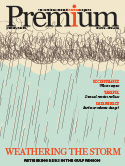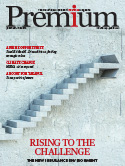IUMI supports decarbonisation, calls for regulation

The International Union of Marine Insurance (IUMI) has conveyed in a statement that it fully supports the shipping industry’s move to decarbonisation but recognises that adequate risk management provision must be in place to underpin the transition. New fuel types such as ammonia and hydrogen are being promoted and their use will need to be properly managed and insured – and this requires regulation.
Helle Hammer, chair of IUMI’s Policy Forum explained: “We applaud IMO’s ambition and calls for a decarbonised shipping industry. As marine insurers, it is our job to help shipowners transition to low or zero carbon fuels safely and with all associated risks fully understood and managed. As these new fuel types are largely un-tested, the insurance industry has no history or loss records to help it assess the potential risks involved. We need to learn about these new fuels and educate our clients accordingly. As importantly, we need IMO regulation and Class rules on the implementation and use of these new fuels. This will ensure the safety of the crew and enable marine underwriters to assess and offer necessary financial protection for this new risk profile. Mindful of the time it takes for new regulation to come into force, we urge IMO and other regulators to begin work now”.
Two recent submissions to IMO have proposed the development of safety guidelines for new fuel types and European Union Member States and the European Commission propose to include this in the work plan for the next phase of the development of the International Code of Safety for Ships using Gases of other low-flashpoint Fuels (IGF Code). As a new output under the Maritime Safety Committee, Japan, Singapore, International Chamber of Shipping (ICS) and INTERCARGO have proposed to develop guidelines for safety of newly built vessels using ammonia as fuel. IUMI believes that guidance is also needed for the education and training of crew onboard, and to address safe and environmentally sound operations.
Hammer continued: “Environmentally friendly fuels carry their own risks, ammonia is both toxic and corrosive, and hydrogen has a wide flammability range and ignites easily. Whilst we welcome the proposed safety guidelines as a useful starting point, they are non-mandatory and so can only be an interim measure. We urgently need mandatory requirements to be developed and implemented to facilitate the transition to greener fuels.”





































